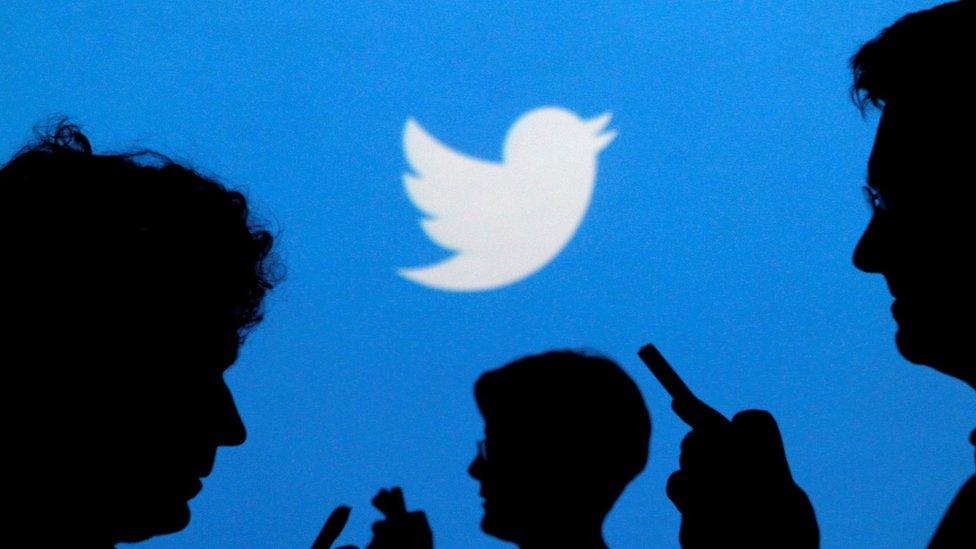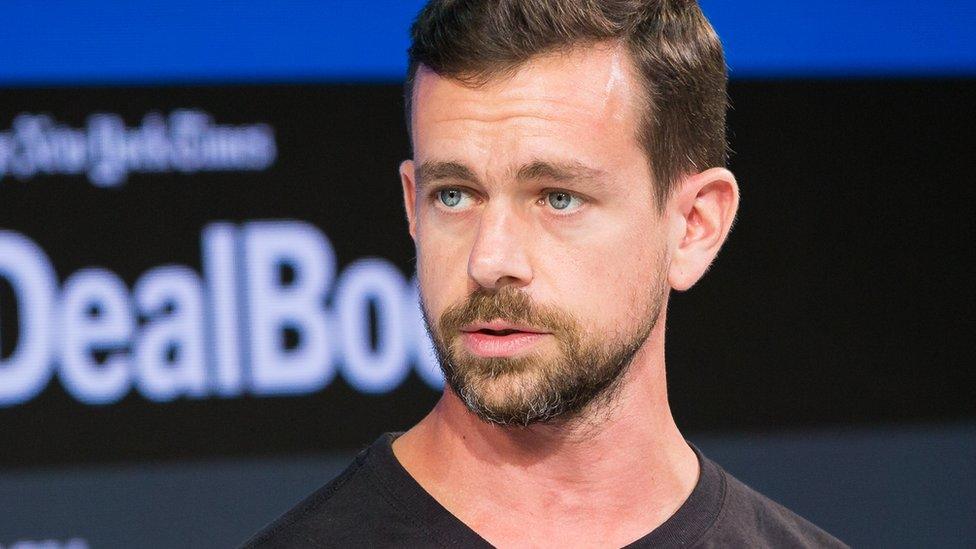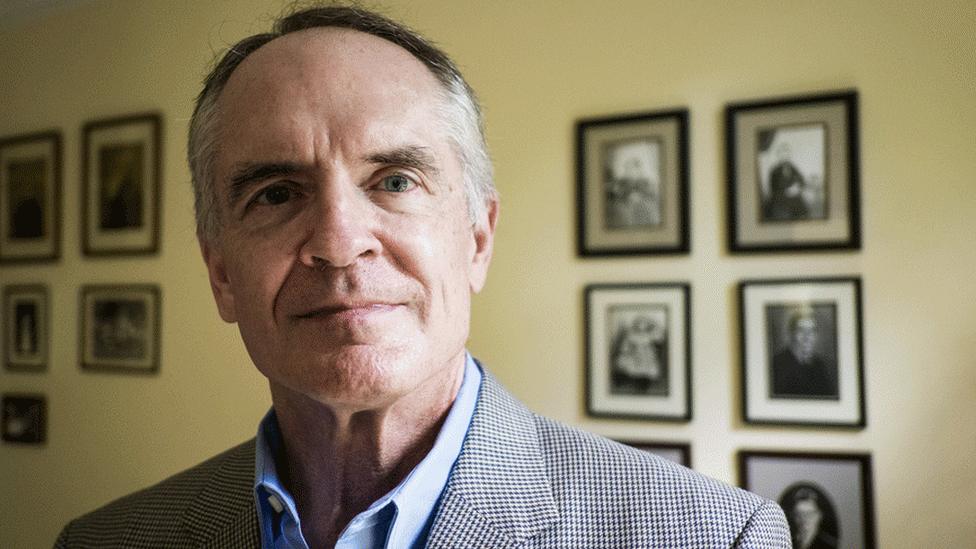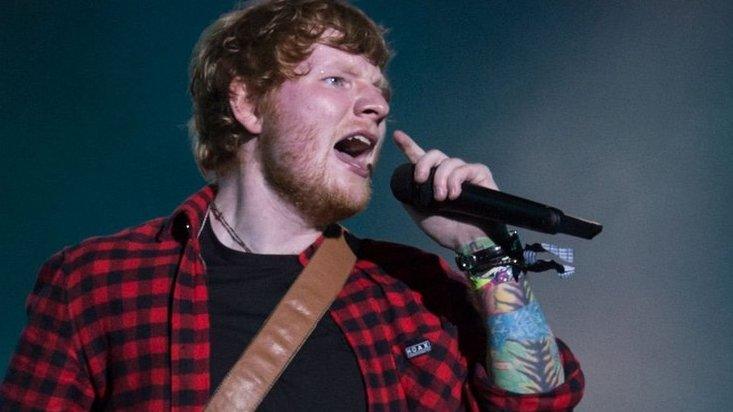Twitter boss seeks help with online abuse
- Published
- comments

Twitter has asked for help in devising a "health check" to measure its contribution to public conversation.
It said it hoped to work with "outside experts" and is inviting proposals.
Its chief executive, Jack Dorsey, said the platform's "instant, public, global messaging" had "real-world negative consequences" that Twitter had neither fully predicted nor understood.
Twitter has repeatedly been criticised for the amount of abuse and propaganda posted by some of its users.
In support of its new stance, Mr Dorsey tweeted a link, external to an organisation called Cortico.
It identifies "shared attention", "shared reality" (which it describes as "using the same facts"), variety of opinion and reception to different views as indicators of a healthy public conversation.

Jack Dorsey has appealed for help
Lisa-Maria Neudert, from the Oxford Internet Institute, said it was a positive step to see Twitter prepared to share its data with researchers and fund their work, but questioned how the measurements might be made.
"I'm not sure if you can measure health of a discourse," she told the BBC.
"If the shared topic of discourse is a terrible propaganda message that's not very healthy."
'Not proud'
However, Ms Neudert said it was a good move for Twitter.
"This is Twitter's way of saying 'we realise our platform has problems and we have to do things about it'," she said.
"It's not just propaganda and meddling but there is also a hostile community on Twitter."
Mr Dorsey admitted that the firm had found it difficult to manage the way its platform was used.
"We aren't proud of how people have taken advantage of our service, or our inability to address it fast enough," Mr Dorsey wrote on Twitter, external.
In a series of tweets he said that the firm had focused on removing offensive content rather than trying to encourage "more healthy debate".
Explaining Twitter's decision to seek a health check, he said: "If you want to be able to improve something, you have to be able to measure it".
Twitter has seen a variety of high profile accounts closed, often by celebrities, because of persistent trolling.
The Ghostbusters actress Leslie Jones left in 2016 after a barrage of abuse following the release of the remake of the movie, which attracted criticism because of its all-female cast.
She has since returned.
The singer Ed Sheeran has been another example of someone famous abandoning Twitter.
On Thursday, British chef and activist Jack Monroe left Twitter "for the good of my mental health".
"I have been in enough abusive relationships to recognise gas-lighting, coercion and bullying, and my personal relationships are suffering as a result of what I experience on here every day," Monroe wrote.
- Published22 February 2018

- Published4 July 2017
